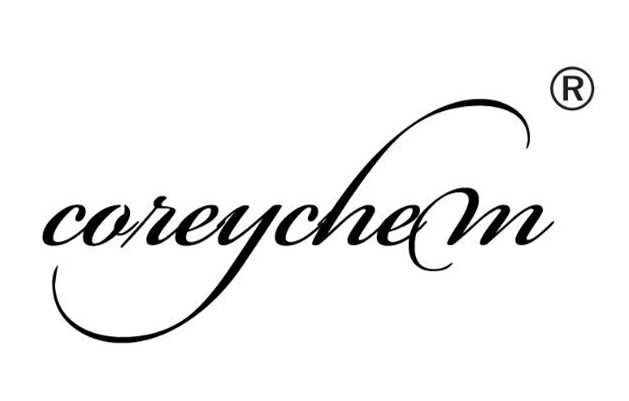

N-Bromosuccinimide
| Price | USD100.00 |
| Packge | 25KG |
- Min. Order:5KG
- Supply Ability:100tons
- Time:2019-07-06
Product Details
- Product Name N-Bromosuccinimide
- CAS No.128-08-5
- EINECS No.204-877-2
- MFC4H4BrNO2
- MW177.98
- InChIKeyPCLIMKBDDGJMGD-UHFFFAOYSA-N
- AppearanceCrystalline PowderWhite to light yellow
- Melting point 175-180 °C (dec.)(lit.)
- storage temp. Store at +2°C to +8°C.
- density 2.098
- Water Solubility Soluble in acetone, tetrahydrofuran, dimethyl formamide, dimethyl sulfoxide and acetonitrile. Slightly soluble in water and acetic acid. Insoluble in ether, hexane and carbon tetrachloride.
- Boiling point 221.4°C (rough estimate)
jessie606
N-bromosuccinimide
Melting point 175-180 ° C (dec.) (lit.)
Density 2.098
Storage conditions 0-6 ° C
Solubility 14.8g/l (decomposition)
Form Crystalline Powder
Color White to light yellow
Soluble in acetone, tetrahydrofuran, dimethyl formamide, dimethyl sulfoxide and acetonitrile. Slightly soluble in water and acetic acid. Insoluble in ether, hexane and carbon tetrachloride.
Sensitivity Moisture Sensitive
Merck 14,1438
BRN 113916
Stable. Incompatible with strong oxidizing agents, halogenated hydrocarbons.
InChIKey PCLIMKBDDGJMGD-UHFFFAOYSA-N
CAS Database 128-08-5 (CAS DataBase Reference)
NIST chemical information 2,5-Pyrrolidinedione, 1-bromo-(128-08-5)
EPA Chemical Information 2,5-Pyrrolidinedione, 1-bromo-(128-08-5)
N-bromosuccinimide use and synthesis
Chemical properties White to milky white fine crystals. Soluble in carbon tetrachloride.
Use as a reagent for the identification of primary, secondary and tertiary alcohols
Use It can synthesize bromoacetonitrile drugs, and the pesticide industry can be used to synthesize thiabendazole. It can be used as fruit preservative and antiseptic, antifungal agent, etc.
Uses Organic synthetic raw materials for the regulation of low energy bromination reactions, as well as for the production of rubber auxiliaries and pharmaceuticals. It can synthesize bromoacetonitrile medicine. The pesticide industry is used for the synthesis of thiabendazole, and can also be used as a fruit preservative and as an antiseptic and antifungal agent.
Uses An important brominating agent for organic synthesis, which is commonly used in the pharmaceutical industry for the synthesis of brominating agents in the synthesis of antibiotics, such as cephed cephalosporin (Cefaloram).
Use Organic synthesis. Brominated olefins. Oxidizing ethanol to aldehydes and ketones. The aldehyde is oxidized to a brominated acid.
Use Multifunctional brominating agent. For the oxidation of tryptophan, but the extent of tyrosine, histidine and methionine residues may be oxidized. It can also be used for the modification of ribose thiol groups. General purpose brominating agent. The silyl ether can be oxidized to an aldehyde in the presence of AIBN.
Uses General brominating reagent; for the oxidation of tryptophan, although tyrosine, histidine, methionine oxidation residues may be present to a lesser extent; group modification for ribosome thiol groups; in the presence of AIBN To oxidize silyl ether to aldehyde
Use as a reagent for the identification of primary, secondary and tertiary alcohols and as an additive for rubber products, also for organic synthesis
Production method 1. Obtained by bromination of succinimide. The succinimide was ground into a reaction pot, and crushed ice and a sodium hydroxide solution were added, and the mixture was stirred and dissolved. With vigorous stirring and cooling, a mixture of bromine and carbon tetrachloride was added, and after stirring for 2 minutes, it was quickly filtered. Wash thoroughly with ice water until it is colorless, wash with a small amount of ethanol, and dry to obtain the finished product. 2. Synthetic ammonium succinate from succinic acid and ammonia, heated and dehydrated to form succinimide, and then brominated and refined to obtain the finished product.
Category Toxic substances
Toxicity classification
Acute toxicity Abdominal-mouse LDL0: 256 mg/kg
Explosive hazard characteristics Explosion with aniline, dialkyl sulfide, hydrazine hydrate; heating at 105 ° C for 24 hours and exploding with propionitrile
Flammability Hazardous properties Irritating to human eyes, skin and mucous membranes; Thermal decomposition of toxic nitrogen oxides and bromide fumes
Storage and transportation characteristics The warehouse is ventilated and dried at low temperature; it is stored separately from aniline; dialkyl sulphide; hydrazine hydrate, peroxide, and propionitrile.
Extinguishing agent foam, dry powder, carbon dioxide, misty water
Security Information
Dangerous goods sign C, Xn
Hazard Class Code 22-34-36/37/38
Safety instructions 26-36/37/39-45-37/39
Dangerous goods transport number UN 3261 8/PG 2
WGK Germany 3
Hazard Note Harmful
TSCA Yes
HazardClass 8
PackingGroup III
Customs code 29251995
Company Profile Introduction
Recommended supplier
-
VIP1年
- ARRAKIS INDUSTRIES LLP
- N-BROMOSUCCINIMIDE 99%
- Inquiry
- 2024-11-05
-
VIP1年
- Scimplify
- N-Bromosuccinamide 128-08-5 99%
- Inquiry
- 2024-10-25
-
VIP1年
- SS Reagents and Chemicals
- 128-08-5 99%
- Inquiry
- 2024-10-24
-
VIP1年
- Pallav Chemicals And Solvents Pvt Ltd
- N-Bromosuccinimide 98% Extrapure 99%
- Inquiry
- 2024-10-24
-
VIP1年
- Ishwar Chemicals and Gases
- 128-08-5 N BROMO SUCCINIMIDE 99%
- Inquiry
- 2024-10-23
-
VIP1年
- AKASH PHARMA EXPORTS
- N-Bromo Succinimide 99%
- Inquiry
- 2024-05-16
-
VIP1年
- Navone Specialties (OPC) Pvt Ltd
- 128-08-5 99%
- Inquiry
- 2024-05-02
-
VIP1年
- Shree Ashaka Chemicals
- N-Bromosuccinimide 99%
- Inquiry
- 2024-03-27
-
VIP1年
- yogi intermediates pvt ltd
- N-Bromosuccinimide 128-08-5 98%
- Inquiry
- 2024-03-19
-
VIP1年
- Purecha Group (Sonal Plasrub Industries Pvt Ltd)
- N-Bromosuccinimide 128-08-5 98%
- Inquiry
- 2024-02-28
- Since:2014-12-17
- Address: No.967,15th Floor,Unit 7, Building 1, No.70 of DianChang Road, High-tech Development Zone, Zhengzho
